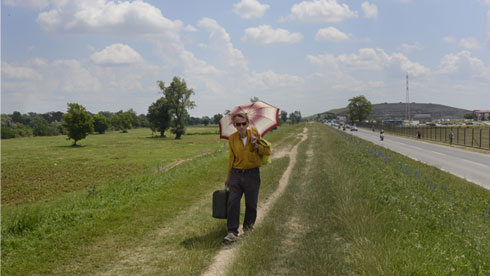In the small town of Hohenthurn, in the Austrian province of Carinthia, near the Italian border, a giant brothel is about to open. Its investors have announced that 140 sex workers will be employed there. The town currently has only 800 inhabitants, and the brothel will trigger a demographic boom in the region. The problem lies not only with the "whores" but also with those (most of them immigrants) who will fill the 40 administrative and logistic jobs, aimed at better serving the sex workers as they go about their daily and nightly labour with their clients.
The investors in question, unnamed entrepreneurs from Switzerland and Germany, have invested over €7m in the project. Their aim is to profit, as much as possible, from the proximity of Italy where prostitution is illegal, unlike in Austria where brothels are legal, sex workers are taxed, protected by the police and benefit from public health services.
All of this goes to show that any means are good to create new jobs in the EU. Let’s not forget the new professions are included in labour market statistics. And without wishing to be ironic, one can state that the new brothel will help to reduce the rate of unemployment for European women in the under-24 age group.
Blighted by unemployment
It seems clear that European leaders are seriously concerned with youth unemployment. "If they have no work, the youth will lose faith in the opportunities represented by the EU as well as in the importance of European unity. There is no future for Europe if its youth is unhappy," they say. Everybody agrees that the brothel will draw a majority of sex workers from the East – the Europe that lived under Communist obscurity until 1989 before it joined the EU.
Unemployment among European youth has reached an unprecedented level: in Greece, 60 per cent of those between 14 and 24 are unemployed; in Spain the figure is 56 per cent; in Italy it is close to 38 per cent. It seems incredible, but it is the truth. The European Union's major supporters, who claim that it is an essential condition for labour market renewal, insist that mobility should be improved by putting an end to prejudice and fear. A single market that needs a breath of fresh air, Europe must be freed of legal and mental obstacles. When a young woman of 24 emigrates, that does not mean that she does so to prostitute herself; yet post-Berlin Wall stereotypes die hard and women from Eastern Europe continue to be sought after as sex workers.
This stereotype (this question is not asked about young women from Greece, Spain or Italy) also serves to hide another: “when people from Eastern Europe emigrate, they do so to steal jobs from Westerners.” Yet, the statistics tell another story. A recent study published in Italy shows that Italians have emigrated en masse to Germany in recent years. From 2011 to 2012, the number of Italians in Germany increased by 40 per cent. Last year some 12,000 Italian workers moved to Germany.
Attractive welfare benefits
A Romanian weekly published the story of a young married couple who invested all their savings in a small flat in Munich so that the wife can have their first child there. They did this for a simple reason; Germany offers benefits to families with newborn babies while in Italy social benefits are non-existent.
Europe does not share a common social policy, labour market regulations are determined on a national level – each country operates according to its own fashion – and, thus, the smallest influx of immigrants is seen as an attack against a state that is faring better than the others.
The mobility of sex workers is guaranteed but this is not a problem created by the European Union, it is a problem that has existed since time immemorial. It is a consequence of our unstable and hypocritical civilisation.
Stepping up labour market controls
Austria and Germany have already made it known that they will use their right to a "moratorium" to restrict Croatian workers access to their labour markets, so as to prevent them from disrupting the situation in their countries. Last year, Germany, the only European locomotive attracted more than one million migrants, most of them from other EU countries, ranging from Greece to Poland. A large influx of Croatian workers could cause some disruption and that is why Austria and Germany are planning to carefully monitor and restrict their entry.
Following the same logic, the president of the Veneto Region, Luca Zaia, has written a letter to the Croatian prime minister, [Zoran Milanović] asking that Italy, in agreement with Brussels, take measures to control the flow of people from the new member state. Zaia argues that the unemployment rate in Croatia has reached 24 per cent and that the average salary in Croatia is 30 per cent less than in Italy.
The Veneto Region is thus fearful of a Croatian invasion and demands that its workers be protected. Yet, this same region, in cooperation with the neighbouring regions of Friuli Venezia Giulia and Carinthia in Austria, plans to form a "Euroregion" with the Croatian regions of Istria and Primorje-Gorski Kotar. Frankly, politics is a whoring bitch. Our politicians must now explain to us what an "Euroregion" is – and what it does.

Was this article useful? If so we are delighted!
It is freely available because we believe that the right to free and independent information is essential for democracy. But this right is not guaranteed forever, and independence comes at a cost. We need your support in order to continue publishing independent, multilingual news for all Europeans.
Discover our subscription offers and their exclusive benefits and become a member of our community now!












